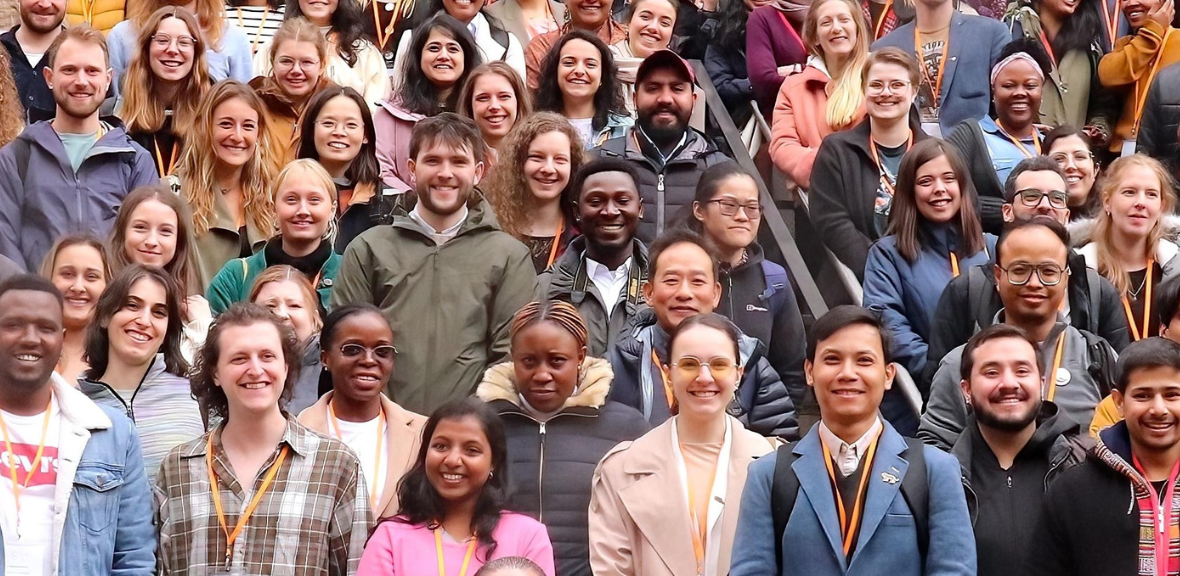
The University of Cambridge Conservation Research Institute (CRI) contains faculty from many different departments on campus that offer relevant MPhil and MSt opportunities for candidates interested in studying conservation and sustainability.
If you are interested in applying to any of the below programmes, then you must first contact a potential supervisor, and then apply to that person's departmental programme.
Our research addresses three main themes relevant to these programs:
1. Protecting biodiversity, ecosystem functioning, and resilience;
2. Understanding what just conservation transitions to enhanced conservation outcomes could look like; and
3. Enabling just and effective conservation transitions through behaviour and policy change.
The specific taught and research-based MPhils we are linked to include:
Taught (coursework included) :
• MPhil in Conservation Leadership (Geography)
• MPhil in Anthropocene Studies (Geography)
• MPhil in Holocene Climates (Geography)
• MPhil in Environmental Policy (Land Economy)
• MSt in Climate, Environmental and Urban Policy (Land Economy)
• MPhil in Land Economy by Thesis (Land Economy)
• MPhil in Crop Science (Plant Sciences)
Research/dissertation only:
• MPhil in Geography (Geography)
• MPhil in Biological Sciences (Zoology)
• MPhil in Plant Sciences (Plant Sciences)
• MPhil in Land Economy by Research (Land Economy)
Related MPhils include:
• MSt in Sustainability Leadership (CISL)
Potential topics by theme for MPhils that include a dissertation :
1. Protecting biodiversity, ecosystem functioning, and resilience;
Geography:
- How are urban ecosystems responding to climate and anthropogenic pressures? (PI: Adeleye)
- How has vegetation and wetlands changed in response to climate and cultural land use during the past millennia and centuries? (PI: Adeleye)
- How is forest diversity linked to carbon storage in Europe? (PI: Lines)
- How resilient are different European tree species to climate change? (PI: Lines)
- AI-enabled drone monitoring of forest essential biodiversity variables (PI: Lines)
Plant sciences:
- Monitoring nature-based solutions using remote sensing technologies (PI: Coomes)
- Future of forestry and forest biodiversity under global change (PI: Edwards)
- Impacts of selective logging on tropical biodiversity across scales (PI: Edwards)
- Optimising biodiversity and ecosystem service outcomes of tropical restoration (PI: Edwards)
Zoology:
- How can we promote the persistence of species under a changing climate? (PI: Fletcher)
- Effectiveness of habitat restoration for pollinators: spillover effects and population impacts (PI: Dicks)
- Impacts of transitions to regenerative agriculture on pollination or pest regulation services (PI: Dicks)
- The potential to monitor coastal restoration outcomes using remote sensing applications (PI: Worthington)
- The impact on biodiversity and ecosystem services of changing commodity patterns in the coastal zone (PI: Worthington)
2. Understanding what just conservation transitions to enhanced conservation outcomes could look like; and
Geography:
- How do top-down calls for transformative change align with the values of indigenous and traditional communities? (PI: Garrett/Sandbrook)
- What do sociobioeconomies/nature positive economies look like in a given region; which areas are most suitable for which activities; what is their potential scale? (PI: Garrett)
Land Economy:
- How can we quantify the uncertainty about the development and diffusion of different conservation practices and technologies and its drivers? (PI: Diaz Anadon)
- How do different types of infrastructure (e.g., energy infrastructure) shape surrounding land use and ecosystems in different contexts? (PI: Diaz Anadon)
- Scenarios and pathways for food systems transformations for sustainability at regional level (PI: Zabala)
3. Enabling effective and just conservation transitions through behaviour and policy change.
Geography:
- How well do existing conservation and climate policies align with principles for sustainable and just land systems? (PI: Garrett)
Plant sciences:
- How effective are European nature conservation / restoration policies and practices (PI: Coomes)
Zoology:
- How can current and future demand for wood products be met at least cost to biodiversity and the climate? (PI: Balmford)
- Measuring the impacts of landscape-scale conservation policy on wild pollinator populations (PI: Dicks)
- Designing more effective conservation and restoration strategies for landscape sustainability and human-wildlife coexistence (PI: Fletcher)
- How to incentivise the adoption of sustainable farming at scale? (PI: Zabala)
Land Economy:
- How are green industrial policies shaping economic opportunity and conservation outcomes in specific areas? (PI: Diaz Anadon)
- How do difference models of certification and monitoring of carbon credits affect climate, biodiversity and community outcomes? (PI: Kontoleon/Diaz Anadon)
- How can synergies between international legal instruments on biodiversity/conservation and climate change be strengthened? (PI: van Asselt)
If you are interested in applying to any of the above programmes, you must first contact a potential supervisor, and then apply to that person's departmental programme.
Funding Programmes
Suzano + Mastercard
The University of Cambridge Conservation Research Institute (CRI) contains faculty from many different departments on campus that offer relevant MPhil and MSt opportunities for candidates applying to the Suzano and Mastercard programs.
The deadline for submitting applications for Mastercard funding is the 4th December 2024 for courses with a 4th December deadline and 7th January 2025 for courses with a 7th January deadline. When making an application, pay close attention to the funding deadline.
Suzano applicants must be from Brazil, while Mastercard applicants must be from Africa.
https://www.mastercardfoundation.fund.cam.ac.uk


